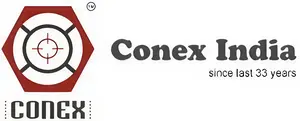Male Nipples
Male Nipples

| Technical Datasheet | |||
|---|---|---|---|
| G | L | d | kg |
| Stainless full threaded nipple 1/8" | 16 | 6,2 | 0,004 |
| Stainless full threaded nipple 1/4" | 18 | 8,9 | 0,006 |
| Stainless full threaded nipple 3/8" | 22 | 12,6 | 0,010 |
| Stainless full threaded nipple 1/2" | 25 | 16,1 | 0,019 |
| Stainless full threaded nipple 3/4" | 30 | 21,7 | 0,020 |
| Stainless full threaded nipple 1" | 35 | 27,3 | 0,043 |
| Stainless full threaded nipple 1 1/4" | 38 | 36,0 | 0,061 |
| Stainless full threaded nipple 1 1/2" | 38 | 41,9 | 0,096 |
| Stainless full threaded nipple 2" | 45 | 53,1 | 0,165 |
| Stainless full threaded nipple 2 1/2" | 55 | 68,9 | 0,180 |
| Stainless full threaded nipple 3" | 60 | 80,9 | 0,320 |
| Stainless full threaded nipple 4" | 70 | 0,370 | |
Male Nipples are a specific type of electrical conduit fitting used to connect two female-threaded conduits or fittings together. These fittings are commonly used in electrical installations to provide a secure and reliable joint between two sections of galvanized Steel conduit.
Here are some important points about male nipples in electrical conduit fittings:
- Material: Male nipples for electrical conduit fittings are typically made of galvanized Steel. Galvanizing involves coating the Steel with a layer of Zinc to enhance corrosion resistance and durability.
- Threaded Connection: Male nipples have external threads on both ends, allowing them to screw into female-threaded openings of conduits or other fittings. The threads are typically in accordance with the NPT (National Pipe Thread) standard.
- Size: Male nipples come in various sizes to match the different dimensions of galvanized Steel conduits and fittings used in electrical installations.
- Usage: Male nipples are used primarily to extend or connect two sections of conduit together, creating a continuous conduit run. They can also be used to connect conduits to junction boxes or electrical enclosures.
- Sealing: When installing male nipples in conduit systems, it is common to apply thread sealant or compound to ensure a watertight and secure connection, protecting the electrical wiring from moisture and environmental elements.
Galvanized Steel conduit and fittings are popular choices in electrical installations, especially in outdoor or industrial environments where additional protection against corrosion is necessary.





